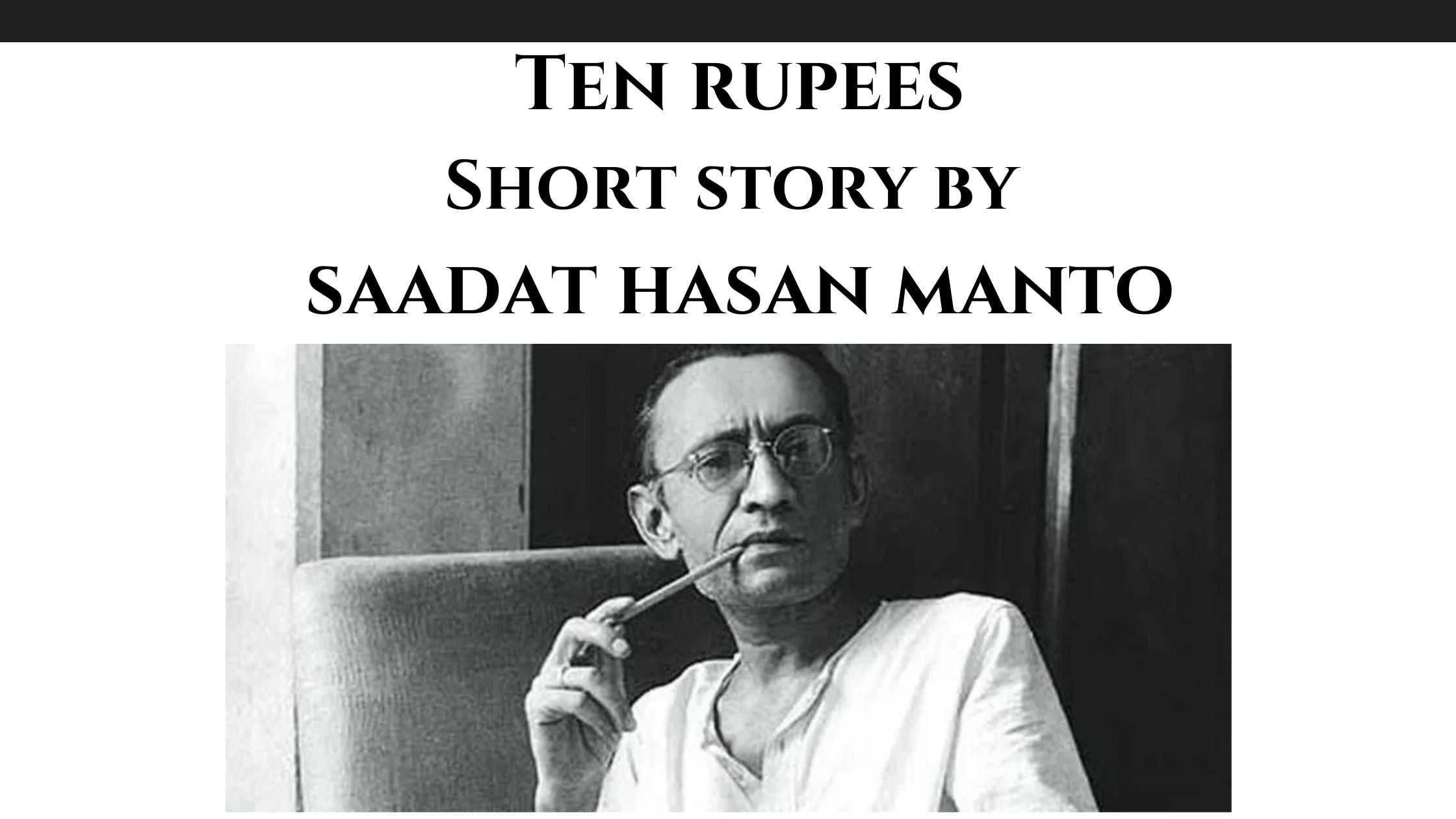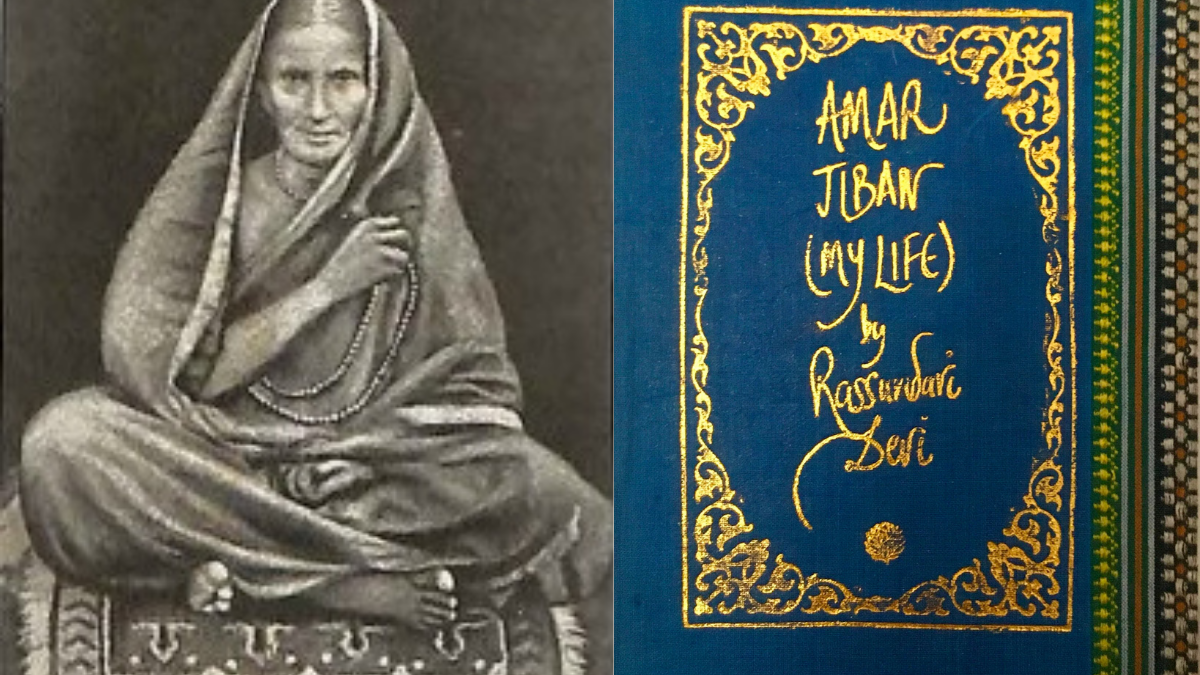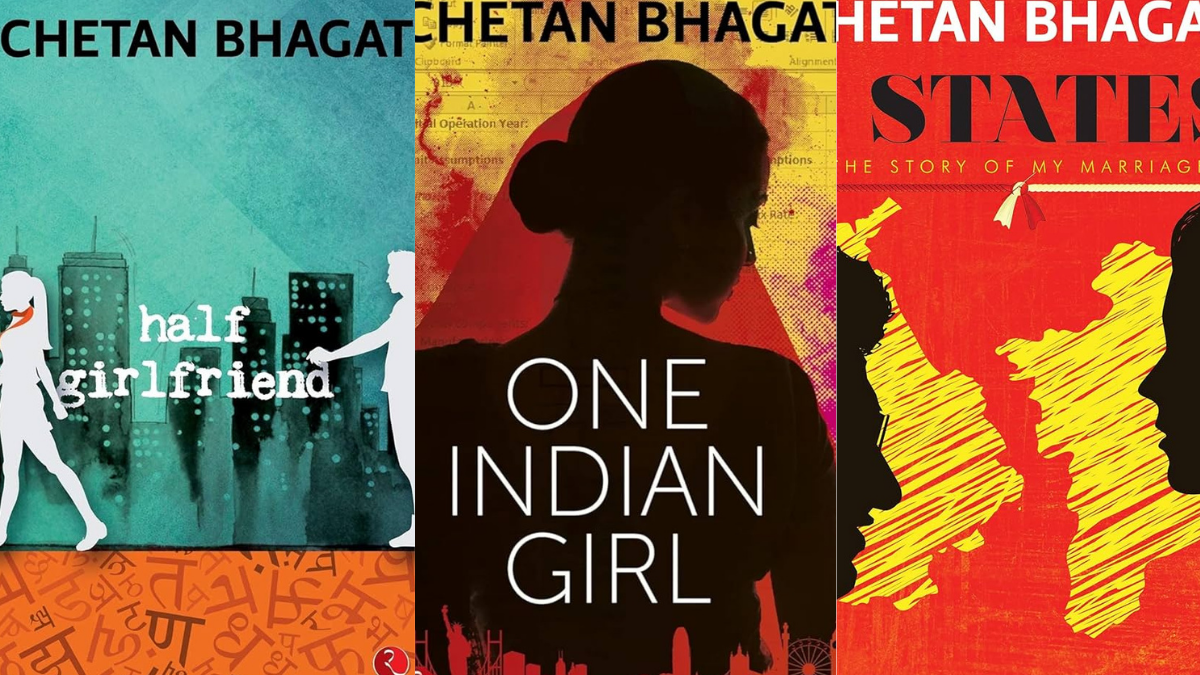Saadat Hasan Manto was a modernist writer who saw through the lies and hypocrisies of the society and instead of playing along, he used his literary skills to expose them.
In his short story 10 Rupay, we see a day in the life of 15-year-old Sarita as she steps out of her neighbourhood that reeks of urine, onto the more freeing lanes of Mumbai. We see Pydhone contrasted with Worli. We can imagine the cramped spaces of the slum she lives in, which compares strikingly to the luxurious car she gets into, the external spaces of Mumbai’s – its beaches, air and its freeing go-get-it life in general.

Manto builds these binaries on sex and gender throughout the narrative. Sarita’s mother’s dependence on her for their income imposes restrictions on her freedom (her play-time/innocence) within her home, while the agency provided by the men she entertains allows her to visit public places which were otherwise outside her reach. Sarita, of course, does not belong to either of these physical spaces. The only bittersweet solace here is that she does not know it yet.
it is made clear that everyone knows Sarita is being forced into prostitution without her knowledge but the only time someone speaks about it is when they wish to pass a moral judgement against her. The exploitation of women is not just ignored but normalized, and vindictively weaponised against them by the society
Sarita is an apt example of an ‘always already subject’. On the way to getting ready to meet the 3 gentlemen for the day, she asks her mother if her friend can come along the next time, not knowing that what she has been participating in lies outside the sphere of domestic and legal acceptance. By being born destitute, there are certain meanings transcribed onto her body and we see the exploitation of this in the actions of her mother who understands the sexual connotations ascribed to a woman and uses it to attain financial transcendence or at the very least, mobility.
Manto also hints that patriarchal morality does not just condition men’s treatment of women but also women’s understanding of other women and their own selves. We see how Tukaram’s wife is unperturbed by her husband’s sleazy advances towards Sarita and instead spews hate towards the minor suggesting that she deserves this treatment, this violation of her body because she went out with other men.
Also read: Women In Manto’s Stories: Not Narratives; But Realities
Furthermore, it is made clear that everyone knows Sarita is being forced into prostitution without her knowledge but the only time someone speaks about it is when they wish to pass a moral judgement against her. The exploitation of women is not just ignored but normalized, and vindictively weaponised against them by the society.

Parallels between Sarita, her mother and the lives of women in India
Sarita’s mother’s deliberate normalisation of the obvious violation of her daughter’s trust in her can be paralleled to the violation of the trust women place in the country as citizens, when the country fails to safeguard their basic rights and safety. Manto brings out this critique strikingly well.
The rich men in his story are old and tired just like the narrative around women’s bodies and their right to live. Sarita doesn’t just want to survive, she wants to live and she does so within the limited agency that she is given. One must ask then, whether the lies entrenched in her life temporarily protect her from the horrifying realities around her, or keep her distracted so that when she finally finds out, it becomes too late to break free
India, despite the rapid rise in the instances of honour killing, still does not have laws specific to the crime. The laws around prostitution are equally vague wherein managing a brothel and pimping is illegal, but it is not considered an act of prostitution if consensual sex takes place with no pre-decided form of payment. This loophole allows perpetrators to find a way around the law and walk away scot-free. The woman, then, is interpellated into a world whose very systems work against her.

Similarly, Sarita’s mother no longer requires her daughter to do the housework, or tasks that other children her age are encouraged to do. The 15-year-old is completely driven out of the domestic space. In India, the attitude towards sex workers is dominated by the patriarchal concept of their immorality, impurity and sin and they too (both in idea and practice) are distanced from the domestic sphere in the sense that they cannot hope to be socially integrated, or to get married and start families of their own. In comparison, the men who visit them often have families of their own or are forgiven for their role in the act.
Also read: Why ‘Manto’ Continues To Be Relevant Today
In Manto’s story, we also see a pattern of how young girls are thrown in the chasm of womanhood as soon as they hit puberty, while men go around drinking on beaches and flirting with minors even when they are as old and crippled as a ten rupee note. After all, ‘boys will be boys‘.

Manto humanises Sarita for what she is – a little girl. The realism and satire on society in Manto’s stories make us conscious of our own flaws.
The rich men in his story are old and tired just like the narrative around women’s bodies and their right to live. Sarita doesn’t just want to survive, she wants to live and she does so within the limited agency that she is given. One must ask then, whether the lies entrenched in her life temporarily protect her from the horrifying realities around her, or keep her distracted so that when she finally finds out, it becomes too late to break free.
Fatema recently completed her Master’s in English Literature and Communications from CHRIST University, Bangalore, India. Often found in the peripheries – of dinner table conversations, house parties and commercial events (a LOT of stage management, basically), she enjoys observing people in their natural element. This might be a side-effect of not having television cable while growing up, she isn’t very sure.
Featured Image Source: Bookishloom




